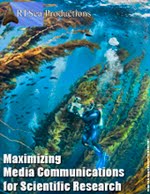 Ocean ecotourism is becoming more and more a method by which countries, particularly developing or 2nd/3rd world nations, can find economic justification for instituting conservation measures. The island of Cebu, part of the Philippines, has recently become a typical example of ecotourism's benefits, but it also highlights some of the challenges.
Ocean ecotourism is becoming more and more a method by which countries, particularly developing or 2nd/3rd world nations, can find economic justification for instituting conservation measures. The island of Cebu, part of the Philippines, has recently become a typical example of ecotourism's benefits, but it also highlights some of the challenges.The town of Oslob in southern Cebu is predominantly a fishing village and local fisherman often bring in vast catches of a small shrimp locally known as "uyap." Over the past few months, another fisherman of sorts has taken a liking to the shrimp: whale sharks. The number of reported sightings began with just one and soon increased to up to seven at a time.
Though the whale sharks, reported to be from 16 to 25 feet (5 to 8m), were competing with the fishermen for the shrimp, which represented an important source of income, the fisherman wisely chose not to chase off or harm the whale sharks but to capitalize on their appearance. Ecotourism in the form of whale shark diving. Whale sharks are a popular attraction worldwide in both aquariums and in the wild. While some may question the wisdom of keeping such a large animal confined within an aquarium exhibit, seeing them in their natural habitat can be an exciting and enlightening experience.
Successful ecotourism relies on two key components: 1.) Recognizing and transitioning to a new business revenue model and 2.) establishing the logistics that will ensure its long-term success.
In Cebu, the fisherman reportedly charge 100PHP (Philippine Pesos) to allow tourists in the water with the sharks, and they charge an additional 100PHP for snorkel gear. The fishermen use some of their shrimp catch to coax the sharks up to the surface and for that they charge 100PHP for the shrimp. [For Westerners, those are bargain rates, about $7USD total per diver, so I would expect rates to rise as business continues to improve.] The response from tourists has been good and the number of divers has been steadily increasing, thereby allowing the fishermen-turned-ecotourism operators to successfully offset their losses from the sharks feeding in their local waters. So the recognition of the economic value of a living whale shark and the transition to a new source of revenue have been successful.
However, some of the logistics or the specific details as to how the shark diving is carried out have pointed out challenges that need to be addressed immediately. Reports started to circulate that the whale shark operators were unfamiliar with how to safely handle these sharks. Apparently, some fishermen were showing the tourists how they could ride the whale sharks, grabbing the dorsal fin or even, it was reported, grabbing the gills. This can stress the animal unnecessarily and can actually damage the skin, exposing it to unwelcome bacteria.
A Philippine-based dive group, the Sea Knights, stepped in last week to observe the whale sharks and the ecotourism operators' methods. In many parts of the world, there are specific procedures and guidelines that whale shark diving operators follow to both ensure the safety of the sharks and the divers and to make that their actions do not permanently chase away the sharks. The Sea Knights plan to present a report to local government officials soon.
“Oslob is already planning on making an ordinance to protect the whale sharks. We want to recommend to the local government that they make an ordinance as soon as possible and have it implemented right away since the number of whale sharks is growing rapidly,” said Fr. Charlie Orobia, OAR, Sea Knights vice president.
Shark ecotourism is being promoted by many shark conservationists as a viable way to get local communities to recognize the economic value in conserving and protecting sharks, whether it's a relatively benign species like the whale shark or more iconic species like tiger or white sharks. But it is equally important that it be implemented in a safe and prudent manner and that it be effectively managed with guidelines strictly enforced.
To a shark advocate, that's good conservation. To the local fisherman, that's good business.
Source: Cebu Sun-Star.

















2 comments:
Shark diving sound like a real adrenaline pump! It is something that I would definitely try. Although everything is 100% safe, there is one small amount of unknown and fear that is so tempting to go for it. Gonna try once, for sure. But than again, shark whales are not as dangerous as sharks :)
Not to worry, Sarti. Whale sharks are not aggressive and feed primarily on plankton and small shrimp - they're appetite is similar to filter-feeding whales. But they are definitely exciting to see and high up on most divers' "to do" lists.
Post a Comment